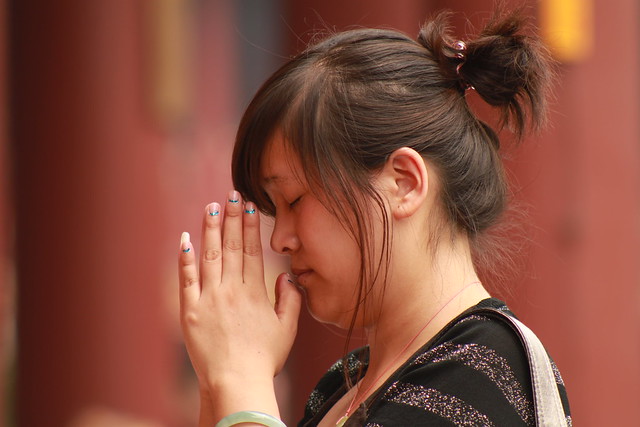Link to original talk on LDS.org
A lot of this talk is stories about people who were praying for something and then it came to them. There is one story at the end of a woman who goes blind and she comes to terms with not having her eyesight restored in an “endure to the end” way. I think we need to be very careful about how we talk about prayer and the blessings that we receive from it because there are lots of people in this world hurting and praying and not getting the relief from their burdens that they desire.
If you are interested in another perspective on prayer, Mary Jane Woodger, a professor at BYU, wrote What I Have Learned about Mighty Prayer in the December 2006 Ensign. For this lesson outline, I have a mix of quotes and questions to get discussion started.

Early in the talk, Elder Hales quotes Matthew 6, “The scriptures teach us, “For your Father knoweth what things ye have need of, before ye ask him.”
Discussion Question: Why would we need to pray if Heavenly Father already knows our requests?
Elaine A. Cannon in Reach for Joy in the April 1982 Ensign, “Adversity is an important part of the preparation for at least three reasons. One, God knows whom he can trust and who, like Job, will stand firm and love him unconditionally. Second, adversity well handled can increase our understanding and compassion. And we will be more effective in helping others when we’ve had a few challenges of our own. We just may need to be an answer to somebody else’s prayer. And third, we draw closer to our Heavenly Father when we are in deep need. Our prayers of thanksgiving and joy of course should be part, and are a part, of our worship, but I guess there isn’t anybody here who won’t admit that we pray more fervently when we’re under the press of problems. Attitude in adversity turns hopeless to hopeful.”
Discussion Question: Have there been times in your life where you don’t feel God is answering your prayers? If yes, was it worth it to pray in those times? Why/why not?
Patricia T. Holland stated in the October 1987 Ensign, “We are women now, not children, and we are expected to pray with maturity. The words most often used to describe urgent, prayerful labor are wrestle, plead, cry, and hunger. In some sense, prayer may be the hardest work we ever will engage in, and perhaps it should be. It is pivotal protection against becoming so involved with worldly possessions and honors and status that we no longer desire to undertake the search for our soul.
Discussion Question: Are there times where prayer might not be beneficial? Or is it always a positive?
In the Ensign article linked above, Woodger states, “Although the Lord has promised to grant our righteous desires, I recently learned to look at prayer in a new way. ‘The miracle of prayer does not reside in the ability to manipulate situations and events.’ Rather, the miracle is that we have a relationship with God and have the knowledge that He is there, that He loves us and desires to bless us. “
Discussion Question: Have you ever received an answer to a prayer that was not what you expected? What was it like to follow a prompting that seemed contrary to your original thoughts?
If you need other lesson ideas, here are a few from our archives about prayer:
- Relief Society Lesson: Help from on High
- Gospel Principles: Praying to Heavenly Father
- Young Women Lesson: How Can I Make My Prayers More Meaningful?





